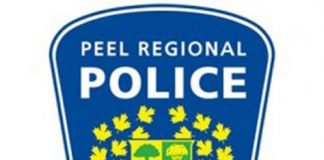THE Province of British Columbia has formally extended the provincial state of emergency, allowing health and emergency management officials to continue to use extraordinary powers under the Emergency Program Act (EPA) to support the Province’s COVID-19 pandemic response.
The state of emergency is extended through the end of the day on May 11 to allow staff to take the necessary actions to keep British Columbians safe and manage immediate concerns and COVID-19 outbreaks.
“With over 1.5 million British Columbians already vaccinated and tens of thousands more joining them each day, the end of this pandemic is in sight. But we’re not there yet,” said Premier John Horgan on Tuesday. “I know how hard people have been working to keep others safe. The final mile of this pandemic is proving more difficult, but if we all keep doing our part to follow public health orders, including staying close to home, we will get through this sooner rather than later.”
The extension of the provincial state of emergency is based on recommendations from B.C.’s health and emergency management officials. The original declaration was made on March 18, 2020, the day after Dr. Bonnie Henry, Provincial Health Officer (PHO), declared a public health emergency.
“So many British Columbians are doing their part, but there are too many who just aren’t getting the message,” said Mike Farnworth, Minister of Public Safety and Solicitor General. “Every time someone thinks the public health orders don’t apply to them, or that they can bend the rules just this once, it sets us all back. We have orders in place to keep people safe and bring us through to the end of this pandemic. Now we have new travel restrictions in place, and people need to follow these orders – not just because we will enforce these orders, but because it’s the right thing to do.”
The Province continues, with the support of police and other enforcement officials, to use measures under the EPA to limit the spread of COVID-19, including issuing tickets for owners, operators and event organizers who host an event or gathering contravening the PHO’s orders.
On July 10, 2020, the COVID-19 Related Measures Act came into force, enabling provisions created for citizens and businesses in response to the COVID-19 pandemic to continue as needed should the provincial state of emergency end.
BACKGROUNDER
Facts about B.C.’s state of emergency
* Between August 21, 2020, and April 23, 2021, 1,857 violation tickets were issued, including:
– 328 $2,300 tickets to owners or organizers contravening the provincial health officer’s (PHO) order on gatherings and events;
– 53 $2,300 violation tickets for contravention of the PHO’s Food and Liquor Serving Premises Order,
– 1,441 $230 tickets issued to individuals who failed to comply with PHO’s orders, and
– 35 $575 tickets to individuals who promoted or attended a non-compliant event.
* The Ministry of Public Safety and Solicitor General is continually working to align the Emergency Program Act (EPA) enforcement orders with those of the restrictions enacted by the PHO.
* Additionally, since the pandemic began, police agencies in British Columbia have issued 138 violation tickets totalling $251,994 to individuals who were in contravention of the Federal Quarantine Act.
* The purpose of the Quarantine Act is to protect public health by taking comprehensive measures to prevent the introduction and spread of communicable diseases.
* Since the start of the pandemic, WorkSafeBC has conducted 25,855 COVID-19 related work site inspections.
* On December 16, 2020, the Province announced enhanced enforcement measures to keep British Columbians safe and mitigate the impacts of COVID-19. This included strengthening COVID-19 fine collection measures and asking provincial enforcement officers to support police and increase enforcement by issuing violation tickets during their normal course of duties or when in public places.
* Declarations of provincial states of emergency may be issued by the minister responsible under the EPA.
* The provincial government can extend the period of a declaration made by the minister responsible for further periods of up to 14 days at a time.













